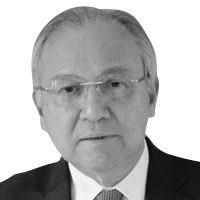Destabilization moves set back the economy

Reports about destabilization moves by groups in the Philippines have reached even Washington, DC, with certain individuals soliciting support from US officials for the ouster of the president. They claim democracy is dead in the Philippines. This sounds like a broken record. There will always be people who will not agree with the government and would even want to undermine the authority of the president, in particular leftists or left-leaning groups.
There was never a time that these groups have not protested against a sitting president, going through their effigy-burning routine. One thing is clear – another undemocratic change in government will set us back another 50 years.
Politics will always be part and parcel of a democratic system. There will be dissent, there will be administration critics and there will always be supporters. But at the end of the day, we should all work toward strengthening the economy and building up investor confidence. While there is inflation and a slowdown in growth, the Philippines is still one of the best performing in the region with a strong outlook, and the structural reforms are seen to promote inclusivity, reduce poverty incidence and create more jobs for the next generation of Filipinos.
It is worth noting however that the rising price of oil in the global market has impacted the economy, resulting in higher prices of goods. After crude prices hit a four-year high of $82 per barrel, some experts even project that oil prices could go between $90 and $100 by the end of the year.
When I met with Senator Dan Sullivan of Alaska, he mentioned the Powder River Basin (located between Montana and Wyoming and is a major producer of natural gas and coal) which has shown huge potential for oil estimated at over 2 billion barrels. Major oil companies are now looking at the region because the land is cheaper and high-tech oil drillings there are less expensive compared to the powerhouse Permian Basin in Texas which is the biggest shale oil producing area in the US.
The shale boom has turned the US into a major oil producer. In fact, the United States is now the highest producer of oil bigger than Saudi Arabia. According to the recent outlook released by the International Energy Agency, America will be producing an extra 1.3 million barrels per day and will become the biggest crude producer in the world. The US is also set to become the fifth biggest LNG exporter, with projections that total LNG export will reach 20 million tonnes. With increasing demand from many countries including China, the global market for LNG is worth $90 billion annually.
Despite the political noise from critics of President Trump, many Americans are upbeat about the US economy which is on an upswing, with 200,000 jobs added last August. According to government data, the unemployment rate remained at 3.9 percent, close to an 18-year low.
However, the serious drug problem in the US could have a major impact on the economy. According to a recent article published in Psychology Today by Dr. William Kelly – director of the Center for Criminology and Criminal Justice Research at the University of Texas, the economic consequences in terms of crime, lost productivity, and healthcare costs due to abuse of illegal drugs including abuse of alcohol is estimated at over $500 billion annually. At any given time, about 4.5 million individuals have a substance abuse disorder due to abuse of illicit and prescription drugs.
I was in New York for the UN General Assembly Special Session on the global drug problem. Hosted by President Trump, the anti-narcotics event highlighted the alarming drug situation, with 450,000 people dying every year due to drug overdoses or drug-related issues. In recent years, 31 million people all over the world required treatment for drug addiction, said UN Secretary-General Antonio Guterres.
“The reality is that drugs and addiction are not abstract issues,” Guterres remarked, describing the situation as “alarming” with global production of opium and manufacture of cocaine now at their highest levels.
President Trump emphasized the link between illegal drugs, organized crime and terrorism. “It’s vital for public health and national security that we fight drug addiction and stop all forms of trafficking and smuggling that provide the financial lifeblood for vicious transnational cartels,” President Trump said.
Syed Akbaruddin, India’s Permanent Representative to the UN, pointed out that drug trafficking is used to finance terrorism, which terribly impacts his nation. “The opium produced in Taliban-controlled areas is estimated to account for 85 percent of global illicit production, valued between $1.5 billion to $3 billion,” he disclosed.
US government data has placed the number of people dying of drug overdose – mainly opioids – at 72,000 last year. In Washington DC, over 1,200 cases of overdosing since July were recorded due to “K2” or “spice” – a cheap synthetic drug that mimics marijuana. Addicts are walking like zombies and simply collapsing on the streets, bleeding to death. Worse, the use of K2 is being linked to murders as aggression is one of the symptoms of K2 addiction.
No doubt, what President Duterte has been saying about illegal drugs has been right all along with nations now putting the spotlight on the seriousness of the problem. Majority of Filipinos realize this, judging from the recent SWS survey that showed 78 percent of Filipinos satisfied with the president’s war against drugs. At the end of the day, we should all face the fact that President Duterte’s fight against drugs was always the right path all along.
* * *
Email: [email protected].
- Latest
- Trending

























